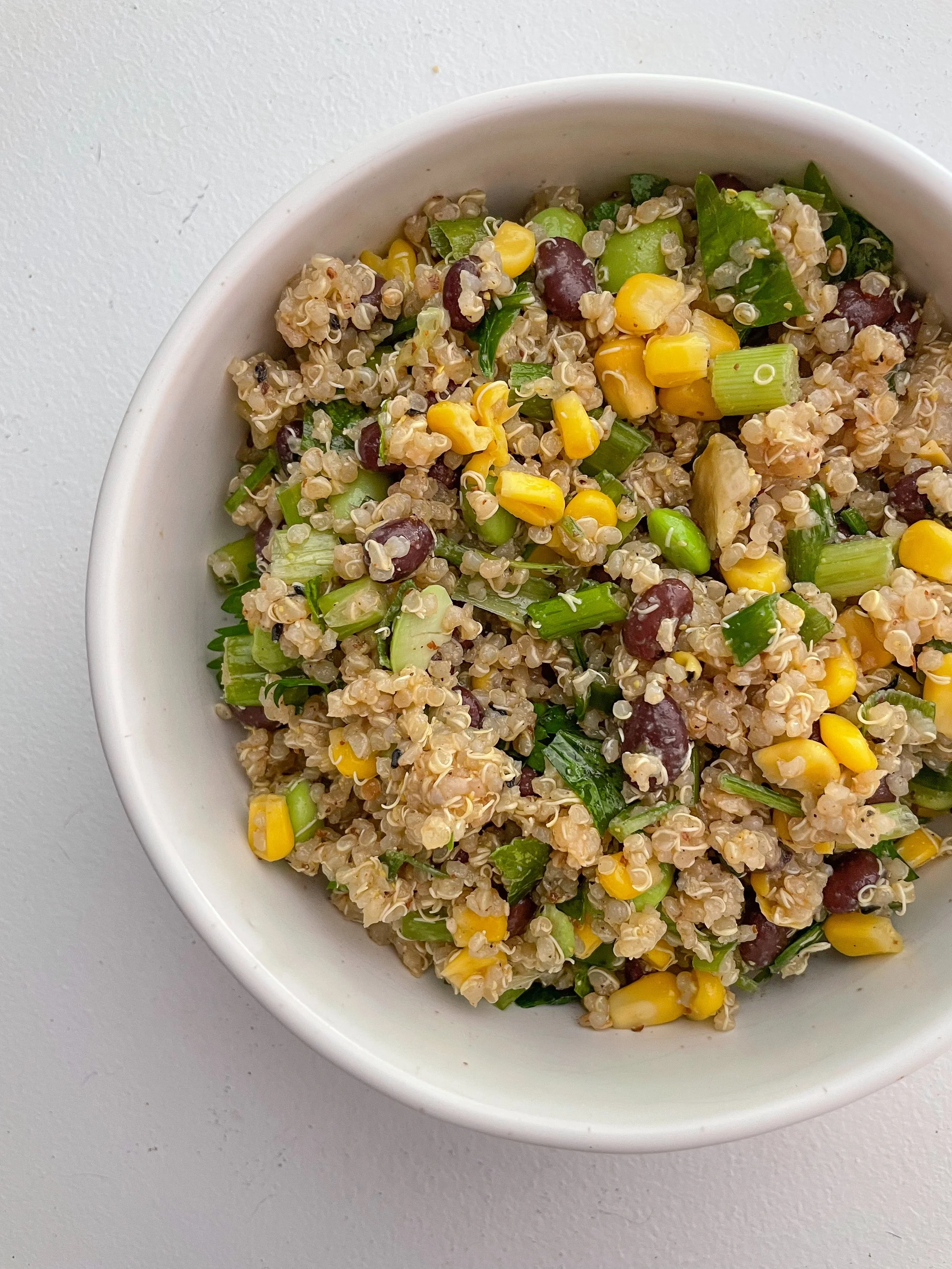The Benefits of Coffee Leaf Tea - Wize Monkey
Why I Sip Coffee Leaf Tea
What is coffee leaf tea? Unsurprisingly, it’s exactly what it sounds like. It’s made from the Arabica coffee plant leaves and it’s substantially lower in caffeine than coffee and tea.
Wize Monkey is a Vancouver company that makes coffee leaf tea in partnership with Nicaraguan coffee farmers. Coffee can only be harvested a few months of the year while the leaves can be grown and picked year-round, meaning coffee leaf tea is providing a more stable income year round.
Wize Monkey has been a big proponent of spreading the word of coffee leaf tea and its health benefits and have been keeping a close eye on the latest research and health findings. They shared a recent UBC study on the nutrition of coffee leaf tea with me and now I’m happy to be sharing some of the insights with you!
One of the biggest nutritional components of coffee leaf tea is its high levels of mangiferin, an active compound commonly found in mangos. This phytochemical has been studied for cardiovascular benefits, anti-inflammatory compounds and protective aspects for heart disease and cancer. A new scientific study was just conducted on coffee leaf tea and nitric oxide.
Let’s talk about nitric oxide and how the tea affects the production of the compound.
Nitrogen (N2) and oxygen (O2) are gases in our atmosphere. Nitrogen makes up 78% and Oxygen 21% and we need these to live. These two gases can combine to form an oxide of nitrogen known as Nitric Oxide. Over the last few decades, Nitric Oxide has been of interest to scientists. In 1992, it was named the “Molecule of the Year” and in 1998 The Nobel Prize was given to scientists for discovering it’s signalling role in the Cardiovascular and Nervous System (1).
The human body synthesizes Nitric Oxide with the enzyme Nitric Oxide Synthase from the amino acid L-Arginine alongside several co-factors. You may have read about certain foods being high in L-Arginine or perhaps you’ve heard the of an amino acid. There are 20 different amino acids and some are essential, meaning they must be obtained through diet as the body doesn’t make them. Amino acids, like L-Arginine, are often referred to as the building blocks of protein as hundreds to thousands of amino acids combine to make proteins. Proteins play many critical roles within the body including forming antibodies, enzymes, acting as a messenger and sending signals, provide structural support, transport and store such as ferritin.
How does Nitric Oxide impact the body?
1- Cardiovascular System
It was found that the endothelial cells in our body produce endothelium-derived relaxing factor (EDRF) relaxing the smooth muscle cells within the arteries, veins and lymphatic system. This results in vasodilation defined as the widening of blood vessels which increases oxygen and blood flow thereby reducing blood pressure. This means more oxygen can reach your brain, heart and other important organs. This may lead to increased exercise performance, test it out and let me know.
Over the last two years consulting with clients, I’ve seen many people with high blood pressure so this is relevant and applicable information. When plaque building up in one’s arteries, known as atherosclerosis, the body’s capacity to produce nitric oxide is reduced. It’s important to note that some diseases, diabetes and chronic kidney disease for example, cause a reduction in nitric oxide in people therefore they may have poor circulation, decreased nerve function or be at risk for cardiovascular events (2). Nitric oxide also helps reduce the formation of blood clots by inhibiting platelet formation.
2- Immune System
Nitric oxide is involved in the development of diseases, referred to as pathogenesis, and the control of infectious diseases, tumours, autoimmune disorders and degenerative diseases. (4). Macrophages, a type of leukocyte (white blood cell) engulfs bacteria, parasites and tumour cells. Nitric oxide controls the growth and death of these foreign particles (5)
3 - Memory and Learning
There is some research to suggest that nitric oxide plays a role in our memory and learning new tasks as a neurotransmitter in the brain (6). Not only has research shown nitric oxide induces cognitive behaviour, they’ve examined learning and memory impairment in humans with defective nitric oxide activity due to conditions such as stress, epilepsy and diabetes. Reports have examined Alzheimer’s Disease finding that a neuron degeneration impacts the the nitric oxide synthesis as well as less nitric oxide containing neurons in the hippocampus.
Coffee Leaf Tea Time
How does all this information relate to coffee leaf tea you ask?
A study was conducted this year at UBC on the benefits of young and mature coffee leaf tea (7). The researchers examined the processing method, ie black tea versus green tea as well as the length of infusion. Scientists even included the steeping time to further research the impacts on antioxidants, anti-inflammatory activity and total polyphenol content (TPC). The results showed that the longer coffee leaf tea steeped, the greater the potential to reduce inflammation.
There was more. By examining nitric oxide, the black tea processing of coffee leaves shows there is an impact on inflammation. The research paper states beverages, such a Wize Monkey coffee leaf tea, can potentially alleviate high blood pressure reducing the risk of cardiovascular disease. The study also shows coffee leaf tea can also aid in protecting us from microbial invasions which supports our immune system.
Feeling a cold coming on? Drink some coffee leaf tea!
Wize Monkey will soon be offering green tea processing of the coffee leaf tea as well. This is exciting as the research shows this method has more of a potential in the area of increasing antioxidants in the body and reducing inflammation. As a registered holistic nutritionist and live blood analyst, I often see clients with free radical stress and my recommendation for this imbalance is to consume foods high in antioxidants, such as coffee leaf tea.
Inflammation is another very common imbalance I see with clients. Inflammation may exist from consuming foods you are sensitive to, an injury, arthritis or perhaps it’s due to your gut flora. If a client has an imbalance in their gut microbes (the bacteria) then it can lead to ‘leaky gut’ which literally refers to the intestines being leaky. This causes inflammation in the body and down regulates the immune system. I suggest working with a nutritionist to determine the cause of inflammation, but for now, you can simply enjoy a cup of Wize Monkey coffee leaf tea.
Jordan Bruce, BA RHN LBA
brucesroots.com
@brucesroots
Thank you Wize Monkey for supporting the Bruce's Roots lifestyle. This is a paid post, all opinions are my own and this is research based.
https://www.wizemonkey.com/blogs/news/coffee-leaf-tea-shows-promise-for-treating-inflammation-ubc-study
1 - http://circ.ahajournals.org/content/98/22/2365
2- https://www.ncbi.nlm.nih.gov/pubmed/17928410
3 - https://www.nutritionexpress.com/showarticle.aspx?articleid=286
4 - https://www.nature.com/articles/ni1001-907
5- https://www.sciencedirect.com/science/article/pii/S1567576901000868
6- https://www.ncbi.nlm.nih.gov/pmc/articles/PMC3121276/
7- https://www.sciencedirect.com/science/article/pii/S0308814617320447?via%3Dihub
































